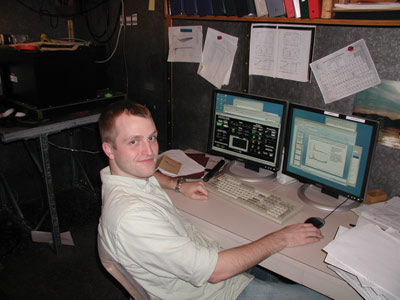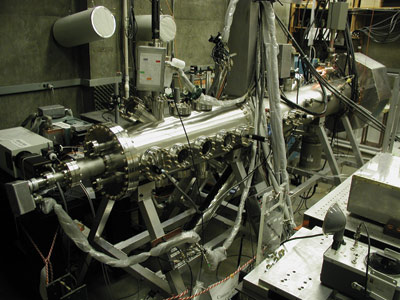Who: Joseph Michael Blakely (Joe)
From: Toledo, OH, USA
Attending College: University of Washington (Seattle, WA)
Major: M. S. in Aeronautics and Astronautics, graduated December 2008
What first got you interested in your area of focus?
I have been deeply fascinated by air and space vehicles for as long as I can remember. When I was a young child, my parents frequently took me to air shows near Toledo, to the local Air National Guard base to watch jets take off and land, and to the Kennedy Space Center to watch space shuttle launches while we vacationed in Florida.
 In my early education, math and science were consistently my strongest subjects. I spent much of my free time outside of school taking things apart to figure out how they worked. Long before attending the University of Notre Dame as an undergraduate, I knew that I wanted to be an engineer, and, given my interest in flight, aerospace was definitely the best fit.
In my early education, math and science were consistently my strongest subjects. I spent much of my free time outside of school taking things apart to figure out how they worked. Long before attending the University of Notre Dame as an undergraduate, I knew that I wanted to be an engineer, and, given my interest in flight, aerospace was definitely the best fit.
What has been the toughest challenge in your higher education?
As one reaches the higher levels of education, motivation to complete work comes less from instructors and professors and more from the individual student. Setting and adhering to personal goals and deadlines in research and schoolwork is challenging, but it instills a sense of responsibility that is hugely beneficial to an aspiring technical student.
What career/job/industry do you hope to be involved in after graduation?
Ideally I would like to work in the aerospace industry on electric propulsion devices for space travel.
What do you think is the most important issue facing the world/our country today, and do you have any opinions on possible solutions?
Human reliance on renewable resources for energy production has long been a controversial subject. It has sparked economic tensions, debates on global responsibility, and even war. In time, nuclear fusion will likely provide a cheap, clean, and safe alternative to fossil fuels. Seawater, the most abundant substance on the planet, would provide the primary fuel source. Also, with proper material choices, most radioactive waste would have a significantly lower half-life than from fission reactors.
 Describe how the idea for your application of AutomationDirect products came about:
Describe how the idea for your application of AutomationDirect products came about:
Previously, manual operation of the ZaP Flow Z-Pinch Experiment was the only method of operation. This method was fairly operator-intensive and was open to both variability between pulses and the possibility of human error. Designing and implementing an automated operation system had long been a goal of the project, and DirectLOGIC PLCs proved a userfriendly, cost-effective solution.
Originally Published: Dec. 1, 2009

